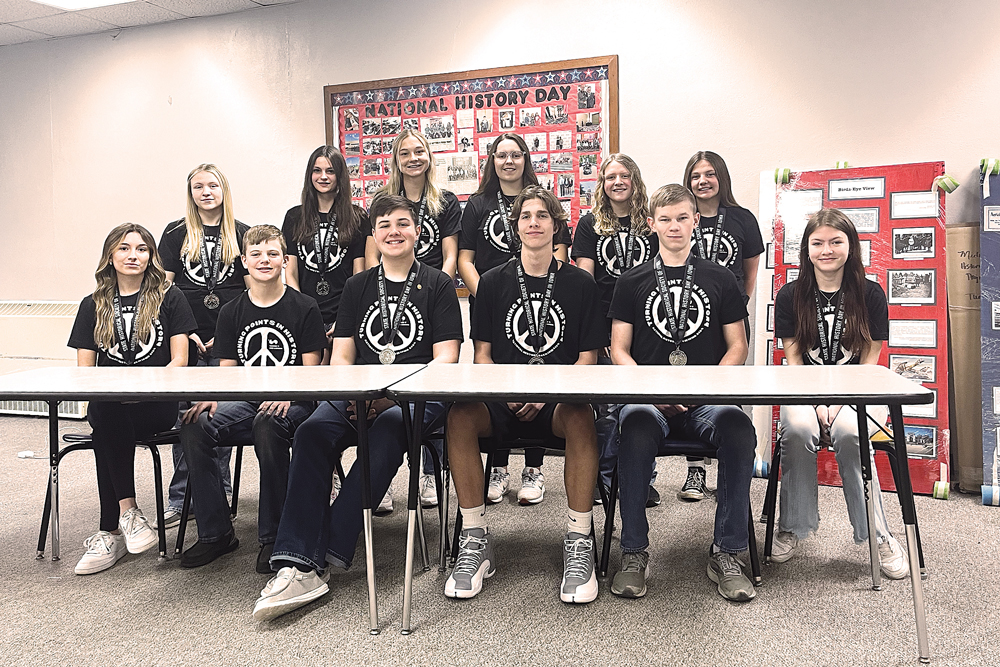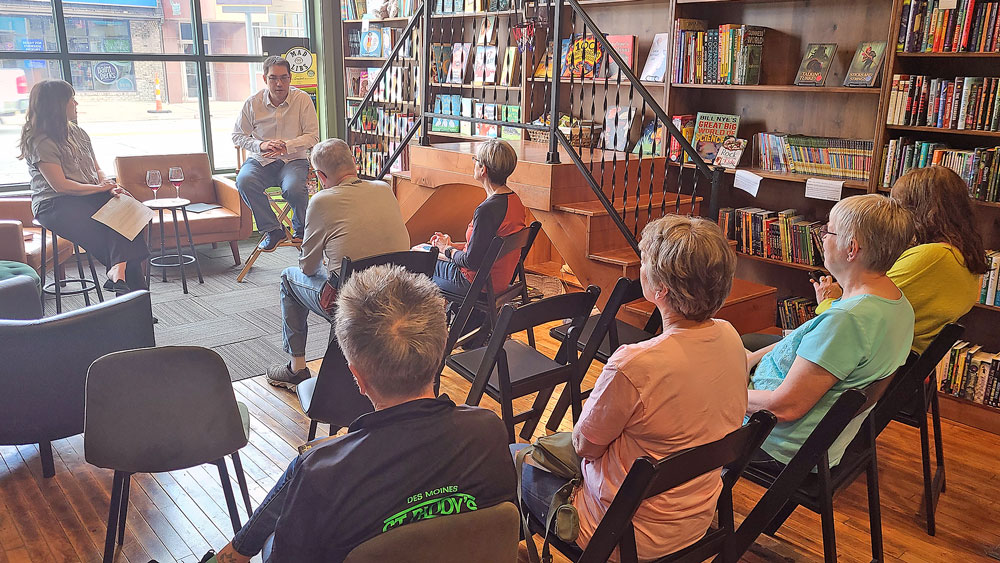Nashua police warn of possible online predator targeting area teens
By James Grob, jgrob@charlescitypress.com
The Nashua Police Department is warning citizens about a possible sexual predator targeting area teens via Facebook Messenger.
The NPD received two reports on Sunday and a third Sunday night. Once the NPD alert went up on Facebook, numerous others confirmed that they, too, had received the same contact. Some had ignored it, some had blocked the profile, some had reported it to Facebook’s administrative services.
“We’ve had multiple reports today of this profile on Facebook sending messages to our local youth,” the NPD’s message read. “This is a fake profile and the conversation starts like the image you see. The person you are interacting with is not the person pictured. Block them and don’t interact or send them messages.”
NPD Patrolman Ben Scholl said he doesn’t believe the online predator is located anywhere nearby, and that the Messenger identity and profile used are clearly fake.
“We are fairly confident that there’s not an imminent threat in this case,” he said. “We don’t think someone’s going to show up at someone’s house.”
However, Scholl said he believes it’s important to get this information to the public, before the potential predator finds someone who can be manipulated.
“One out of so many kids is going to send a picture,” he said. “Once they have a picture, they can use that to blackmail you or manipulate you in any number of ways.”
In the image the NPD provided as an example, the profile went by the name of “Tom.” After establishing contact and “adding” the young person, who was questioning whether or not she knew Tom, Tom began to threaten her.
“Listen to me, or I will hack you and make it so you lose everything,” Tom said. “Even if you ignore me, go offline or tell anyone I can still do it ok. So listen to me and I will stop it all ok?”
Tom implies that whatever type of device the girl is on, he can hack it and make it so it never works again. The young woman was ultimately solicited for sexual images under threat of public shaming through “dirt” the person supposedly had. No images were provided and she contacted the police.
The NPD urged parents to talk to their children about predators such as these. Scholl said it is important to make parents and children aware.
“I am sure this is only one of many profiles used by this person, so the most important thing is to make sure people use really good judgment in their interactions,” Scholl said. He added that some people have told him they planned to engage the person and try to get more information.
“Just remember if you add him, there is a chance he will have access to your friends list and other information, depending on your settings,” Scholl said.
The NPD has made some initial contacts to Facebook administrative services regarding the situation. As far as Scholl knew, no one from this area had sent a photo of any kind to the assailant. Scholl said it’s best to never engage someone who sends a message like this.
“Don’t accept friend requests from people you don’t know, and don’t accept friend requests from people you know you’re already friends with,” because it could be a hijacked account.
Scholl said that a person loses power when he or she engages a potential predator in any way, and if the account is persistent, it’s best just to block them.
“Once they engage with you, then they have the power over you, because they know your information and you don’t know theirs.”
Even if the assailant can’t manipulate you into doing anything, they still have access to all your online friends, and they can try to manipulate them. Scholl said it’s possible that’s what happened in this case — the potential predator engaged with one person, then moved on through that person’s friend list.
“If the person who gets the initial message just blocks the account, then they have no power over you,” he said.
Scholl said the person could be 3,000 miles away or farther.
“It’s difficult to track these people down. We’ve taken initial steps to secure the account,” he said. “Even if it’s been deleted, the digital footprints are still there.”
Scholl reiterated that the NPD doesn’t think the potential predator in this case is local.
“We don’t think it’s next door. When you read the dialog, it’s not 100 percent clear,” Scholl said, adding that the phrasing could imply that English wasn’t the person’s first language.
He said most small town police departments don’t usually have the resources to track down a suspected internet predator, especially if he or she is working from another part of the world.
“It’s very easy to remain anonymous on the internet,” Scholl said. “We’ve preserved everything on the Facebook end, and we’re going to look and see if we can narrow it down.”
If they get to a point where they can get some help from the Iowa Department of Criminal Investigation, they’ll do it, Scholl said.
He said that they could possibly even try to obtain a search warrant, in order to find the alleged predator’s IP address. In the meantime, the best thing they can do is inform the public of what’s happening.
“We need to get some awareness out there before someone sends a photo,” he said.
The NPD has found several links to the profile picture connected to the account, many sent to them by helpful citizens.
The photo, Scholl said, is not the image of the predator, but probably an image stolen off the internet of “some poor guy” who was chosen because he looks nice and non-threatening and looks about the right age to be talking to teenage girls.
“The person pictured is obviously a real person who is likely a victim of someone finding their image on the internet and using it for these terrible means,” the NPD said on its Facebook Page. “Our intention isn’t to shame the person in the image, rather to bring to the attention the very real danger which could befall an unsuspecting person.”









Social Share